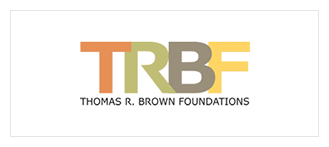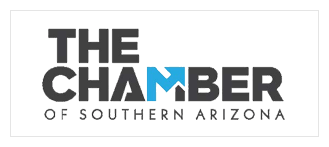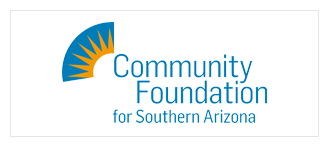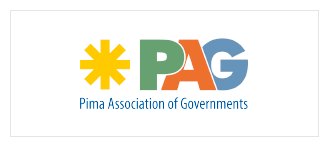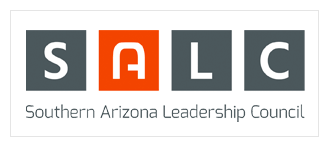The coronavirus pandemic has negatively impacted more than 70% of small businesses statewide according to the Census Bureau’s Small Business Pulse Survey. However, the overall sentiment regarding the impact of the coronavirus pandemic on small businesses improved significantly between April and the end of September. Data collected in phase 3 of the Census Bureau’s Small Business Pulse Survey indicated a decline or leveling off in that improved sentiment.
The MAP Dashboard reviewed phase 1 and phase 2 data from the Small Business Pulse Survey in late 2020 in a series of articles: “Small Businesses Disproportionately Impacted by COVID-19 Pandemic” and “Small Business, Big Impact.” This article will provide an updated look at the phase 3 data, which details how small businesses were faring at the beginning of 2021.
The Small Business Pulse Survey provides weekly insights into the challenges small businesses continue to face during the coronavirus pandemic. The survey contains detailed trend information on how small business owners view their daily operations. Data for Tucson is not available, but exploring the Phoenix Metropolitan Statistical Area (MSA) and state-level data may provide insight into what to expect in Southern Arizona.
As of mid-January 2021, nearly 75% of small businesses in Phoenix and Arizona report that the coronavirus pandemic had at least a moderate negative impact on their businesses. That is consistent with national data collected, but more small businesses nationally reported a large negative effect. In Arizona, 5.0% of small businesses reported a moderate positive effect on their business from the pandemic. As illustrated in Figure 1, no small businesses in Arizona reported a large positive impact on their business from the coronavirus.
Figure 1: Overall Effect of Coronavirus Pandemic on Small Businesses
Small businesses throughout the nation indicated a steady improvement between April and October in their overall sentiment of how the coronavirus pandemic has impacted their business. The phase 3 data indicated that both nationwide and in Arizona the sentiment of the pandemic’s impact on small businesses began to level off or slightly decline. Phase 3 data were collected from early November to mid-January. Arizona and the Phoenix MSA posted sentiment values similar to the nation throughout all three phases but the measurement has been more volatile (Figure 2).
The overall sentiment index measures the overall effect of the pandemic on businesses. The index ranges between -1 and +1. The more negative the value the larger the negative effect of the pandemic. A value of zero indicates little to no effect, while positive values indicate a positive effect. Note that there were three phases of data collection with several weeks of no data in-between each phase.
Figure 2: Overall Sentiment Index
The Census Small Business Pulse Survey also reported weekly data on revenue loss for small businesses, defined as those with less than 100 employees. The latest data reported for the week of January 10th indicated that 37.1% of small businesses in Arizona reported a decline in revenue during the previous week.
The map in Figure 3 highlights the recent declines in revenue for the western states. Arizona small businesses outperformed several western states, including California and Texas, which were both above the national average of 40.4%.
Figure 3: Percent of Small Businesses Experiencing a Decline in Revenue/Sales/Receipts
For the Phoenix MSA, 33.3% of small businesses reported declining revenues during the previous week. The percent of small businesses reporting a loss in revenue during phase 3 data collection increased substantially for Arizona and Phoenix when compared to phase 2 (Figure 4). This may help to explain the decline in the overall sentiment of the coronavirus pandemic’s impact on small businesses between November and mid-January. Unfortunately, the Small Business Pulse Survey does not include data for the Tucson MSA.
Figure 4: Percent of Small Businesses Experiencing a Decline in Revenue/Sales/Receipts
The coronavirus pandemic has caused a nation-wide decline in employment across most industries, in particular, the travel and tourism sector. Census began tracking the impact of the pandemic at the end of April, during which time there was a reduction in paid employees for 27.5% of small businesses nationwide. Arizona and the Phoenix MSA small businesses posted similar declines in employment at 26.8% and 25.0% respectively. The latest data, as of January 10th, shows a significant reduction in the percentage of small businesses with a decline in the number of paid employees (Figure 5).
Figure 5: Percent of Small Businesses with a Decline in Number of Paid Employees
Over 40% of Arizona small businesses think it will take more than six months until they return to normal levels of operation. An additional 4.8% believe their business will never return to normal levels of operation (Figure 6). This is an improvement from the phase 2 data which indicated that 6.7% of small businesses in Arizona felt they would never return to normal levels of operation. More small businesses in Arizona and the Phoenix MSA have returned to normal levels of operations than nationally.
Figure 6: Time Until Business Returns to Normal Level of Operation
Several federal, state, and local assistance programs have been made available to small businesses since the onset of the coronavirus pandemic. The most widely utilized program, the Paycheck Protection Program (PPP), established by the CARES Act, provided funds to small businesses to pay up to 8 weeks of payroll costs and benefits. According to the latest data from the Pulse Survey nearly 75% of small businesses surveyed had requested financial assistance from the PPP (Figure 4).
Just under 30% of small businesses in Arizona and the Phoenix MSA had also requested assistance from the Economic Injury Disaster Loans program (EIDL). The EIDL program helps small businesses to meet their financial obligations and operating expenses that were lost due to the coronavirus.
Several additional financial sources are listed in Figure 7 including the Small Business Administration Loan Forgiveness program. To date, only about 20% of small businesses have not applied for financial assistance. Hover over the column above each source listed on the graph to view the full label.
Figure 7: Percent of Financial Assistance Requested by Source of Funds
The Census Bureau added a question during phase 2 that asked if a business had increased their use of online platforms to offer their goods or services. We know nationally and state-wide there has been an increase in remote sales during the coronavirus pandemic. In the U.S., 24.8% indicated they increased their use of an online platform, while that jumped to 25.8% for small businesses in the Phoenix MSA. The statewide rate for the percent of small businesses that increased their use of an online platform to provide goods or services during the coronavirus pandemic just slightly less than the national rate at 22.6% (Figure 8).
Figure 8: Change in Online Platform Use to Offer Goods or Services
Small businesses across the nation are still feeling the economic impacts of the coronavirus pandemic. However, the updated results from the Small Business Pulse Survey indicate a slow but steady recovery. Recent data from November to mid-January does indicate a slight leveling or decline in the overall sentiment of how small businesses are weathering the pandemic. The weekly data provided by the Census Bureau can be accessed by visiting the Small Business Pulse Survey. The MAP Dashboard will continue to provide periodic updates. Stay tuned for an updated article on how households are faring.



